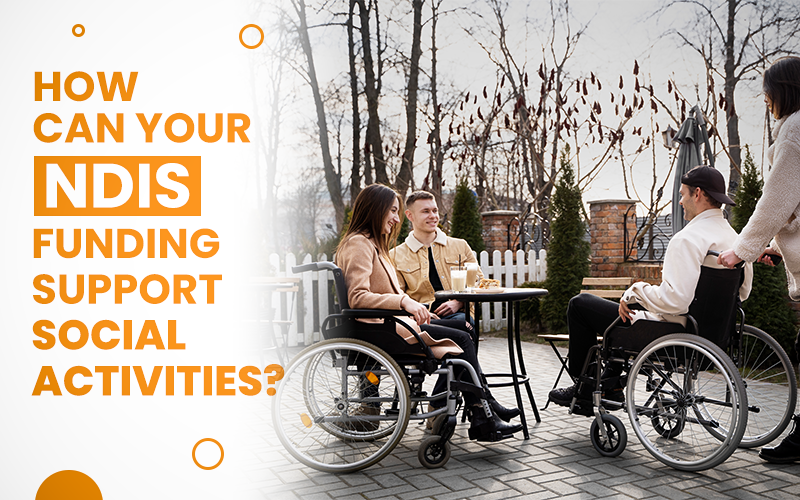NDIS Funding for Essential Life Skills: A Comprehensive Guide
The National Disability Insurance Scheme (NDIS) is designed to support individuals with disabilities by providing funding for a range of services and resources. One of the crucial areas covered by NDIS funding is essential life skills development. This article explores how NDIS funding can be utilized to enhance life skills, the types of supports available, and strategies to maximize these resources effectively.
Understanding NDIS Funding for Life Skills
NDIS funding plays a vital role in helping individuals with disabilities develop essential life skills. These skills are fundamental for personal independence, daily living, and overall quality of life.
1. What Are Essential Life Skills?
Daily Living Skills
Daily living skills include tasks such as personal hygiene, cooking, and household management. These skills are essential for maintaining a self-sufficient lifestyle and ensuring personal well-being.
Social and Communication Skills
Social and communication skills involve the ability to interact with others, express needs, and build relationships. Mastery of these skills is crucial for social inclusion and fostering meaningful connections.
Problem-Solving and Decision-Making Skills
Problem-solving and decision-making skills enable individuals to handle challenges and make informed choices. These abilities are important for navigating daily life and achieving personal goals.
Types of NDIS Funding for Life Skills Development
NDIS provides various funding options to support the development of essential life skills. Understanding these options can help individuals and their families make the most of available resources.
1. Core Supports
Funding for Daily Living Needs
Core Supports funding is designed to cover everyday needs, including assistance with daily living tasks. This funding can be used for services such as personal care, meal preparation, and household chores.
Short-Term Accommodation and Respite
Core Supports also include funding for short-term accommodation and respite services. These services provide temporary relief for caregivers and offer individuals opportunities to develop independent living skills in a supported environment.
2. Capacity Building Supports
Skill Development Programs
Capacity Building Supports funding focuses on developing skills that enhance independence and participation. This includes funding for skill development programs such as workshops and training sessions on daily living skills, social skills, and problem-solving.
Assistive Technologies and Equipment
Funding is available for assistive technologies and equipment that support life skills development. This can include adaptive tools for cooking, communication devices, and mobility aids that facilitate daily activities.
3. Therapeutic Supports
Access to Specialists
Therapeutic Supports funding provides access to specialists such as occupational therapists, speech therapists, and psychologists. These professionals offer targeted interventions to address specific life skills needs and support overall development.
Personalized Therapy Programs
Personalized therapy programs funded through NDIS can focus on areas such as communication enhancement, social skills training, and daily living skills improvement. These programs are tailored to individual needs and goals.

How to Access NDIS Funding for Life Skills Development
Accessing NDIS funding involves several steps, from determining eligibility to utilizing available resources. Here’s a guide to navigating the process:
1. Determine Eligibility
Eligibility Criteria
To access NDIS funding, individuals must meet specific eligibility criteria. This includes having a permanent and significant disability that impacts daily life. An eligibility assessment will determine if you qualify for NDIS support.
Preparing for Assessment
Prepare for the eligibility assessment by gathering relevant documentation and information about the disability and its impact on daily functioning. This includes medical reports, personal statements, and evidence of support needs.
2. Develop a Personalized Plan
Setting Goals
Work with an NDIS planner to develop a personalized plan that outlines specific life skills development goals. These goals should be clear, achievable, and tailored to the individual’s needs and aspirations.
Allocating Resources
The support plan will include allocations for different types of funding, such as Core Supports, Capacity Building Supports, and Therapeutic Supports. Ensure that the plan reflects the resources needed to achieve the set goals.
3. Implement and Monitor Support
Choosing Service Providers
Select service providers from the NDIS-approved list who offer the necessary supports and services. These providers should be experienced and qualified in delivering the required life skills programs and therapies.
Tracking Progress
Regularly monitor progress towards the life skills development goals. Track how effectively the supports are working and make adjustments to the support plan if needed. Regular reviews help ensure that the support remains relevant and effective.
Benefits of NDIS Funding for Life Skills Development
Utilizing NDIS funding for life skills development offers numerous advantages, enhancing personal independence and overall quality of life.
1. Increased Independence
Developing essential life skills through NDIS funding promotes greater independence and self-sufficiency. Individuals become more capable of managing daily routines and living autonomously.
2. Improved Quality of Life
Life skills development leads to a better quality of life by enabling individuals to participate fully in daily activities, maintain personal relationships, and manage their living environment effectively.
3. Greater Social Integration
Enhanced social and communication skills support greater social integration and inclusion. Individuals are better able to engage with their communities and build meaningful connections.
4. Enhanced Problem-Solving Abilities
Strong problem-solving and decision-making skills improve the ability to handle challenges and make informed choices, leading to increased overall satisfaction and achievement of personal goals.
Conclusion
NDIS funding for essential life skills development is a valuable resource for individuals with disabilities seeking to enhance their independence and quality of life. By understanding the types of funding available, developing a personalized support plan, and utilizing relevant resources, individuals can achieve significant improvements in their daily living abilities. Leveraging NDIS support effectively will lead to greater self-sufficiency, social integration, and personal fulfillment.




